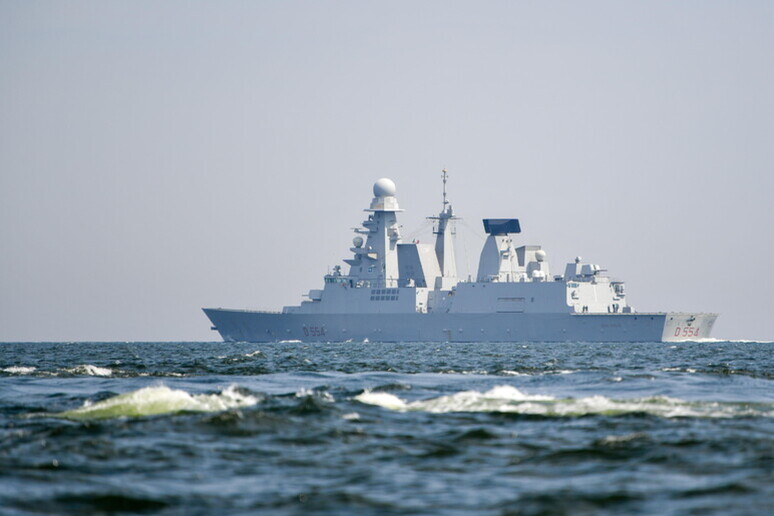Since the commencement of the Russo-Ukrainian conflict on February 24, 2024, Italy has heightened its diplomatic and military engagement in the Middle East area. Under the leadership of Giorgia Meloni, who took office as Prime Minister in October 2022, there has been a notable emphasis on reasserting Rome’s prominence in this strategically and geopolitically significant region. This shift marks a departure from previous inward-focused approaches, as exemplified by Italy’s involvement in safeguarding international maritime routes from Houthi militia threats in the Red Sea.
Key interests
The Meloni administration endeavored to enhance its political, economic, and military influence in the Middle East region to safeguard its strategic interests, leading to the implementation of various policies. The key policies include:
1- Closer relations with energy-producing countries: Italy heavily depends on natural gas, importing approximately 95% of its gas requirements, with Russia historically being the primary supplier, contributing around 40% of total gas imports. Following the Russian-Ukrainian conflict on February 24, 2022, Italy, along with other Western nations, started to consider the Middle East region strategically significant in their endeavors to diminish reliance on Russian energy resources and explore alternative suppliers.
The Arab oil and gas-producing nations have experienced numerous visits from various officials of the Meloni government, particularly from Algeria, with the aim of enhancing the supply of natural gas to Rome. Algeria plays a crucial role in supplying gas to Europe through pipelines that traverse the Mediterranean Sea and via liquefied natural gas carriers. Notably, the Transmed pipeline, spanning 2,000 kilometers and connecting Algeria to Italy, is a key infrastructure, the capacity of which Rome intends to expand. Following Russia, Algeria stands as the second-largest gas exporter to Italy. Italian Energy Minister Gilberto Beccetto Frattin reported an increase in Algerian gas imports to Rome from 28% to 36% of total imports in his parliamentary briefing last year. Italy’s objective is to raise its gas imports from Algeria to 28 billion cubic meters by 2024. Export agreements between the Algerian company Sonatrach and the Italian company Eni are in place, extending until 2050.
2- Calling for a ceasefire in Gaza: In a shift from Western policy regarding Israeli military actions in the Gaza Strip due to increased civilian casualties, the Italian Parliament endorsed a motion on February 14th for an “urgent humanitarian cessation of hostilities in Gaza.” Subsequently, on the 29th of that month, Italian Foreign Minister Antonio Taiani urged for an immediate ceasefire in Gaza and appealed to Israel to safeguard the Palestinian civilian populace.
3- Confronting illegal immigration: Italian policy under the administration of Georgia Meloni towards the Middle East region, particularly North African nations, is centered on mitigating the influx of irregular migration from the region to its shores along the southern Mediterranean coast. The policy places a specific emphasis on Tunisia and Libya due to their status as primary departure points for unauthorized migration vessels bound for the Italian coastline. This strategy involves enhancing the security capacities of these nations to counteract networks engaged in human trafficking and orchestrating illicit migration voyages from North African territories to Italy.
On February 14, Tunisian Interior Minister Kamal El-Feki and Italian Interior Minister Matteo Piantidosi deliberated on collaborative initiatives between their respective ministries pertaining to the prevention of illegal immigration, the combatting of organized crime, and the sustained cooperation aimed at facilitating the voluntary repatriation of undocumented migrants in Tunisia to their nations of citizenship, with the assistance of international organizations.
In the context of Italian initiatives aimed at addressing illicit migration from North African nations, Italy and Tunisia have entered into an accord outlining approximately 12,000 seasonal employment prospects for Tunisian young individuals over a span of three years, equating to an annual average of 4,000 workers. The primary objective is to curtail the influx of unauthorized migration from the Tunisian shoreline to the Italian coast, while also leveraging Tunisian proficiencies and talents. Within the scope of the collaborative pact between the European Union and Tunisia, Italy has earmarked 18 million euros for the Tunisian Employment Agency to enhance the preparedness of Tunisian youth prior to their engagement in the Italian labor market under legitimate contractual agreements.
4- Collaborating to address the Houthi assaults: Italy has emerged as the third European Union member state, following France and Germany, to address the Houthi militia’s persistent assaults on commercial vessels and global maritime activities in the Red Sea. Rome is actively countering Houthi naval hostilities, viewing the militia’s intimidation towards Italy as a potential consequence of its involvement in Western military endeavors against the group, considering the threat posed by the Houthi actions in the Red Sea as a significant breach of international legal norms.
On March 3, the Italian Ministry of Defense disclosed that the Duilio destroyer intercepted a drone affiliated with the Houthi militia in close proximity within the Red Sea. This action coincided with Rome’s dedication to engaging in the European Operation “Aspides” aimed at safeguarding merchant vessels navigating the Red Sea. Rome had earlier declared its collaboration with an admiral to spearhead a naval mission under the European Union’s purview in the Red Sea, with the primary objective of shielding vessels from potential Houthi hostilities, as announced on February 5.
Prime Minister Giorgia Meloni has justified Rome’s involvement in the European Union’s naval operations by emphasizing its role in safeguarding Italian economic interests, particularly given that a significant portion of Italian exports transit through the Bab el-Mandab Strait. On February 1, Italian Defense Minister Guido Crozetto cautioned that the ongoing disruptions in the Red Sea posed a risk to the stability of the Italian economy. Addressing the Defense Committee in the Italian Parliament, he underscored that “the Italian government cannot overlook these challenges. Geopolitically, the perpetuation of this scenario could result in the marginalization of Mediterranean ports,” highlighting that “this not only jeopardizes the security of international maritime traffic in the Red Sea but also imperils Italy’s economic well-being.”
Italy’s New Boundaries
Italy, under the Meloni administration, aimed to enhance its political, economic, and military presence in the Middle East region in response to the challenges and crises impacting its economic concerns. The country also sought to address the decrease in Russian energy supplies to Rome. However, Italy’s role as a significant European player in various issues cannot be overlooked. The dynamics of the Middle East region are intricate and diverse, particularly beyond its immediate interests. Italy has not allocated substantial resources or initiatives to bolster its ties with Arab nations, except in cases where such relations could offer an alternative to Russian gas following the conflict in Ukraine.


